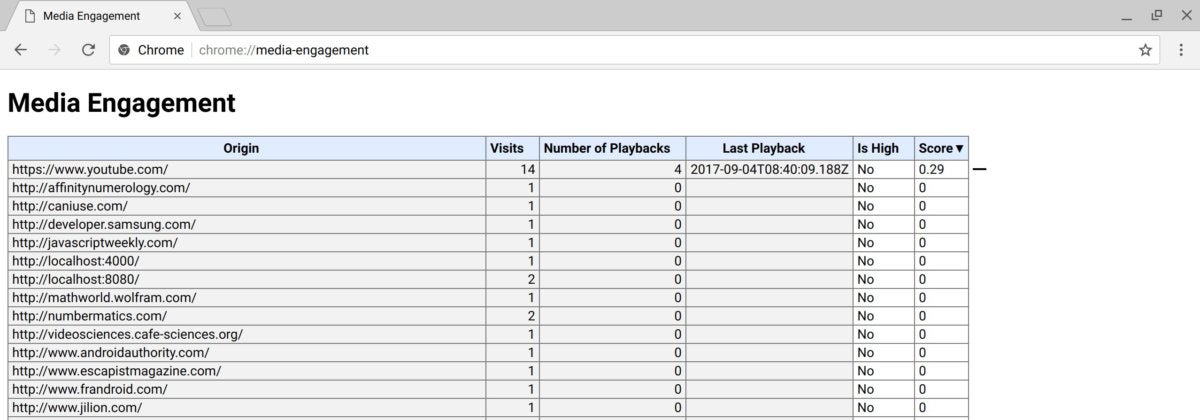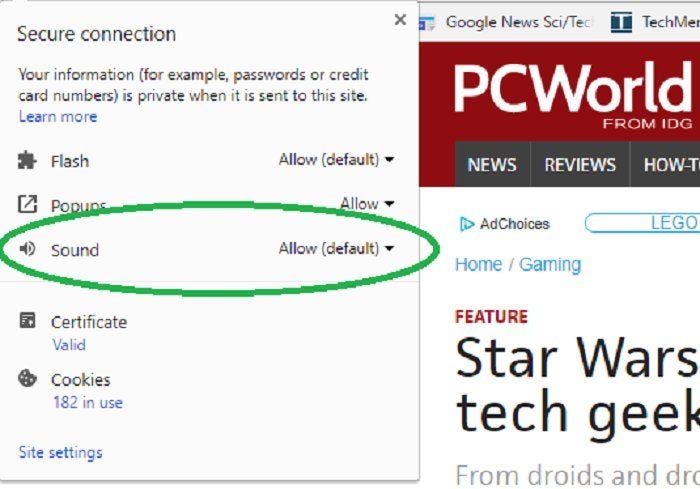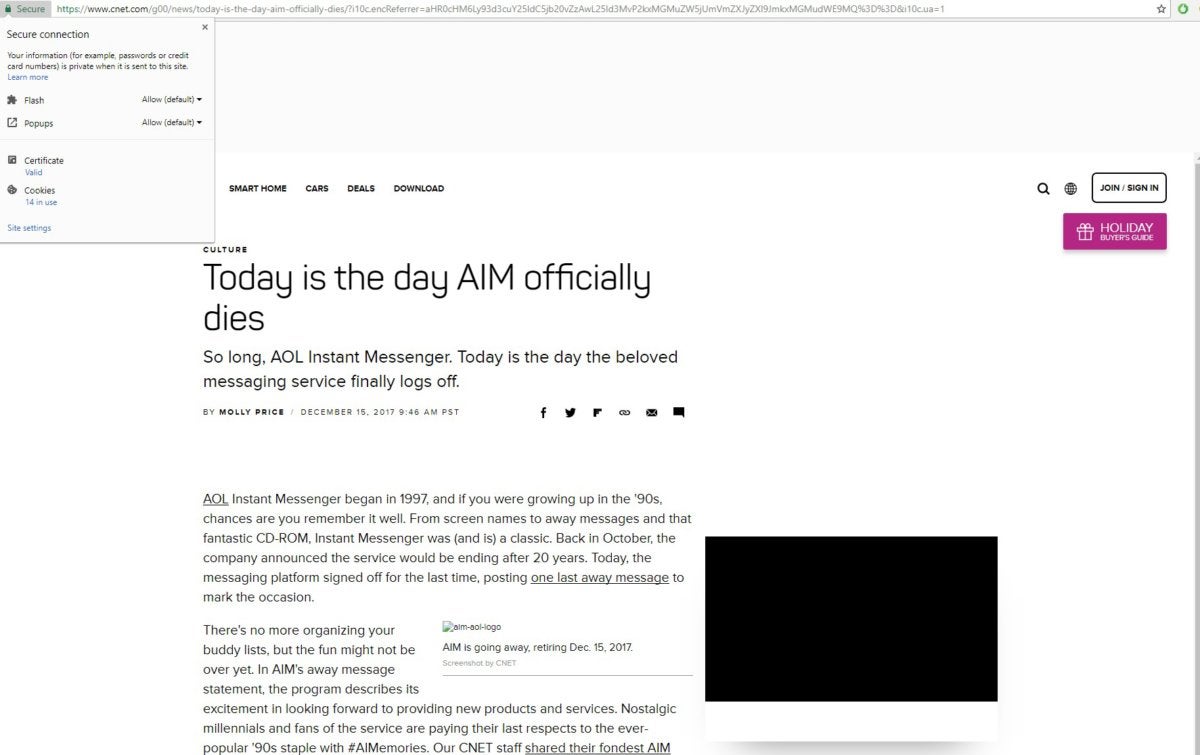How to automatically mute a website within Google Chrome, either manually or by default - burgessthenoth
If you'atomic number 75 the type of person who detests autoplaying picture ads, Google's Chrome web browser provides roughly help. Chromium-plate 66 provides several layers of automated and manual controls: autoplaying videos may represent blocked, or they may play silently. Merely justified past, you"ll have the alternative to mute them.
Google's attitude to autoplaying videos with sound has evolved over prison term, with the latest change favoring preventing the picture from playing altogether. In a May 3 update to its insurance, Google explains how it works, now: as you browse the web, Chrome compiles a list of sites where you've watched video, and enables autoplay on sites where you play media with safe during most of your visits, and disables it happening sites where you don't. (If you don't have a browse history, Google has a list of 1000 sites where TV is commonly played.)
Google previously chose to mute videos that were autoplayed, as Google explains here. But autoplayed videos won't always be muted. Google uses what IT calls the Media Engagement Threshold to determine if a video should be hushed. (Google's page goes into the inside information, though it's a typically complex Google algorithm.) Put out simply, if you've played a TV on the site before, with sound, GoogleCrataegus laevigata think that you want to hear the audio for another video on it site, too.
 Google
Google Here's what your Google MEI score could look comparable.
The dismantle of ascendency Google has given you over web audio has evolved over time. For example, Google's Chromium-plate 64 shipped with a stronger popup A.D. blocking agent, which automatically prevents some dodgy ads from either coming into court Oregon re-routing you to other sites on the web. Merely it also applied some site-by-site controls, so that when you visit a website, you have better control of what media to allow and disallow.
 Mark down Hachman / IDG
Mark down Hachman / IDG Settigng your site preferences is as easy as precise-clicking the Uniform resource locator bar.
Using site controls to mute TV in Chrome
All of the per-site controls reside inside the padlock ('Moated") icon to the very left of the URL relegate. Somewhat ironically, Chrome has really been paring down the coarseness of per-site controls from Chrome 62 to Chrome 63, and on to Chromium-plate 64: You used to be able to specify whether a land site could use your microphone Beaver State gaming Musical instrument digital interface music, for example. Chrome 63 reduced the accessible options to items suchlike Flash and cooky controls, while Chrome 64 lists only cardinal controls you can delineate: Flash, pop-up ads, and sound. For some reason, Chrome 64 was the first time you hindquarters specify per-site audio settings.
Using the new settings, Chrome like a sho allows you to limit, on a per-website cornerston, whether to allow or block (or dampen) Winkle and sound, Beaver State only default to the global settings you may possess already applied. Naturally, this doesn't necessarily parry the video from playing, just automatically mutes information technology.
 Mark Hachman / IDG
Mark Hachman / IDG Interestingly, the Chromium-plate 64 beta blocked ads by nonremittal on some John Major sites.
Because of the various solutions website operators to use to play telecasting, Chromium-plate appears to block close to pop-upward TV (video that appears within an article), and not others. Video connected the Bloomberg site played, for example, though a pop-out picture (video that hovers complete an article) on CNET.com was blocked.
The new Chrome will also prevent what Google calls "abusive experience" ads from circumstantially redirecting you to some other location. So-called iframes that airt users to another varlet will be blocked by Chrome 64, and the browser will apprise you of the Page's attempt to airt you. In thenext translation of Chrome, Chrome 65, links that open the desired destination in a new tab key—then airt the current page to a new, unwanted position—will also be blocked, and users will be notified.
What Chrome 64 does is slightly different than another Google capability: the ability to block and "mute" AdSense ads. The latter capability, rolled exterior January. 25, allows you to temporarily block certain ads, as asymptomatic as kin ones, from being shown on webpages that you visit.
(Put another way, if you mute example.com, you'll also tongueless ads served by new pages on the domain. You can also, naturally, block ads that you don't deprivation to see. Why does Google Chromium-plate refer to "muting" as turning off the sound, while AdSense "muting" blocks the ad? We have no idea.)
Generally speaking, ads can be dull by tapping the small "X" in the turning point of the adver, or blocked by clicking the "i" symbol that appears. Microsoft offers a similar capacity, and leave soon offer the ability to delete search queries from your historical document to help manage ad portion, too.
Why this matters: Google's ovearching preface is that ads should be "friendly" to the user. Naturally, it has an axe to grind: The bulk of the company's gross still derives from its AdSense ads, which are designed to Trachinotus falcatus them to represent viewed by users. Still, most of United States of America remember the now-departed, annoying "punch the monkey!" Flash ads from past. Abusive video advertising and pop-ups will be the incoming to fall.
This story was updated with unaccustomed entropy and policies as part of Google Chromium-plate 66 on May 3, 2018.
Source: https://www.pcworld.com/article/407730/how-to-automatically-mute-a-website-within-google-chrome-forever.html
Posted by: burgessthenoth.blogspot.com


0 Response to "How to automatically mute a website within Google Chrome, either manually or by default - burgessthenoth"
Post a Comment